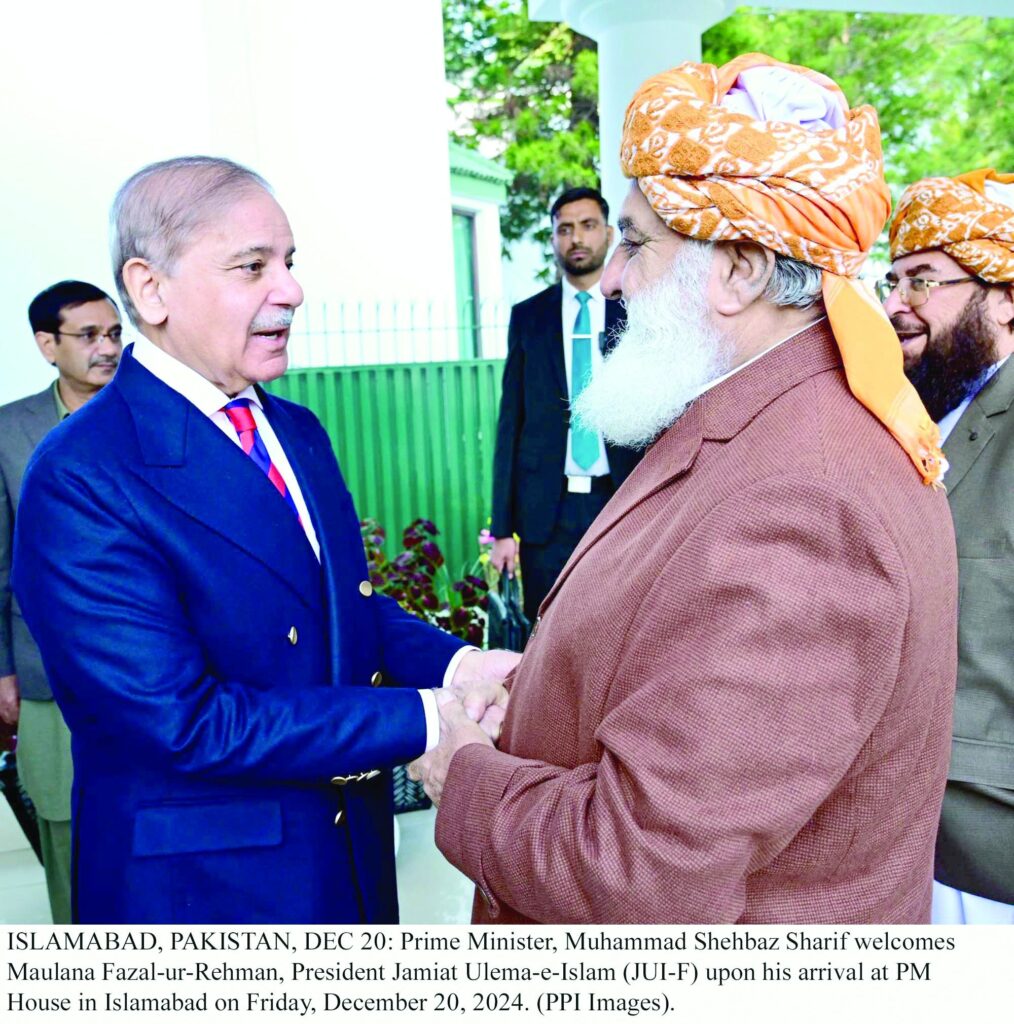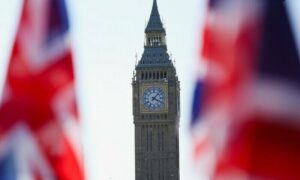ISLAMABAD:
In a potential thaw in the icy standoff over the madrassa bill, JUI-F chief Maulana Fazlur Rehman, long at odds over the madrassa bill, struck a hopeful tone on Friday, claiming that Prime Minister Shehbaz Sharif had instructed the law ministry to take “immediate practical measures” within the framework of the law and Constitution to address the issue.
The move raises hopes of breaking the prolonged impasse between JUI-F and the government over the contentious legislation regulating madrassa affairs. Although cleared by parliament, the bill remains in limbo, awaiting presidential assent, as JUI-F accuses coalition partners of “delaying tactics”.
The announcement followed a meeting between Fazl and the prime minister in Islamabad, which was also attended by senior leaders of the PML-N and PPP. The meeting came after both sides hinted at resolving their differences through dialogue.
Speaking to the media after the meeting, the cleric-politician expressed optimism, saying the prime minister’s response to his party’s stance had been “very positive”.
He added, “The prime minister immediately ordered the law ministry to take practical measures at once as per the law and the Constitution regarding the issue”.
He further stated: “Now it remains to be seen when the practical measures [will be taken]. We hope that they will be as per our demands.” Fazl noted that he would update the Ittehad Tanzeemat-e-Madaris Pakistan, a federation overseeing madrassas, about the developments.
“Hopefully we will hear good news about this in a day or two, and our demand will be accepted,” Fazl remarked. He praised PM Shehbaz’s “good spirit” during the meeting, saying it fostered trust.
“The matter will be resolved in line with the law and the Constitution after talks with the premier,” he stated, reiterating that the party’s demands were constitutional and lawful.
A statement by state broadcaster PTV on X described “positive progress” on Fazl’s proposals. The statement quoted PM Shehbaz directing the law ministry to “take steps in accordance with the Constitution and law to resolve this issue.”
Meanwhile, Pakistan Ulema Council Chairman Maulana Tahir Mahmood Ashrafi voiced support for madrassa registration but urged against exploiting students and institutions for political ends.
In a video statement on X, Ashrafi said, “There are 15 madrassa boards registered with the government.
Of those, five want to be registered with the Ministry of Industries, while 10 want to be registered with the Ministry of Education’s (MoE) department for religious education”.
He highlighted that 18,600 madrassas, accommodating 2.3 million students, are already registered with the MoE. He urged the government to prioritize the students’ futures while drafting legislation.
“We want the 10 new boards to be registered with the MoE,” Ashrafi said, adding that existing systems could continue without disruption. He maintained that boards preferring the Ministry of Industries should be allowed to do so.
“There should be no issue in maintaining multiple systems for operating madrassas,” he said.
Ashrafi stressed that madrassas should have the freedom to choose their registering ministry. “We have no issue with madrassas registering with [the] Society Act, but remember – there are 2.3m students and 18,600 institutions at stake. We do not want them to become pawns in a political game,” he warned.
It may be recalled that President Zardari had returned the bill to the National Assembly with objections on October 29. The legislation had been approved by the Senate on October 20 alongside the 26th Amendment, passed by the National Assembly on October 21, and forwarded to the president on October 22.
Later, the JUI-F chief threatened to mobilise protests against the government to ensure the bill’s acceptance.
The bill was a cornerstone of an agreement between JUI-F and the government tied to the 26th Amendment.
Key provisions of the bill include the requirement for multi-campus madrassas to obtain a single registration and submit annual educational activity reports to the registrar.
Madrassas are also required to have their accounts audited and submit audit reports, while being barred from teaching or publishing material promoting militancy, sectarianism, or religious hatred.
Back in October 2019, the PTI-led government shifted the responsibility for registering seminaries to education departments. This decision followed more than five years of discussions among the federal government, provinces, interior ministry, security agencies, and NGOs. Religious groups advocated for regulating seminaries under education departments, framing them as educational institutions.
Initially, authorities proposed that seminaries be overseen by the Interior Ministry and provincial home departments. However, the PTI government’s decision in 2019 to involve education departments was welcomed by a joint body of religious seminaries representing all four major Islamic sects in Pakistan.
Despite this, seminaries affiliated with JUI-F opposed integrating conventional education into religious institutions and rejected education department oversight due to political disagreements with the PTI government.
Under the Societies Act of 1860, madrassas were traditionally registered by the deputy commissioner’s office. Five boards historically managed seminaries – four representing the mainstream sects (Barelvi, Shia, Deobandi, and Ahle Hadith) and one administered by Jamaat-i-Islami.
Following three years of consultations after the 2014 Army Public School attack, these boards agreed with the government to place seminaries under the Federal Education Department’s administrative control. This led to the establishment of the Directorate General of Religious Education, with rules introduced to allow the creation of new madrassa boards.
Since 2019, ten new boards have been established, challenging the longstanding dominance of the five traditional seminary boards.







